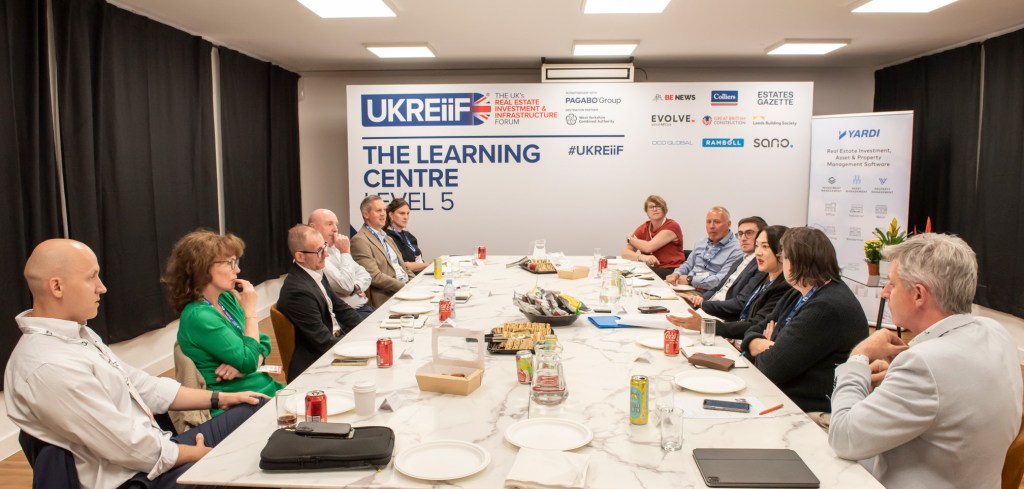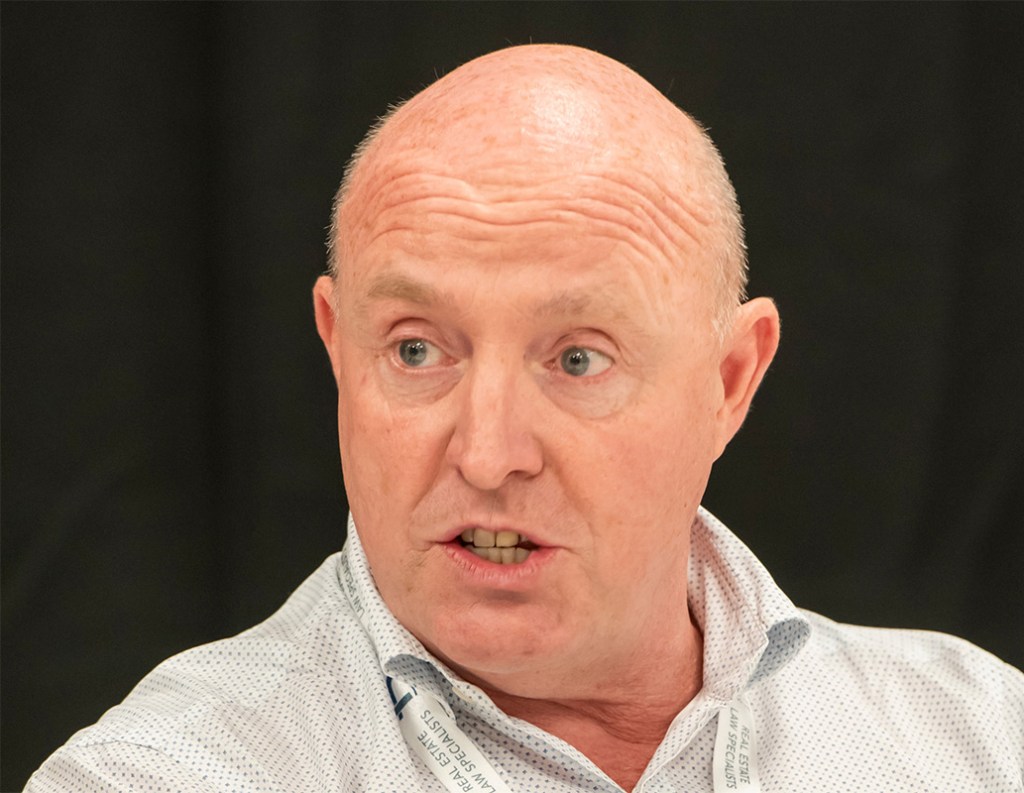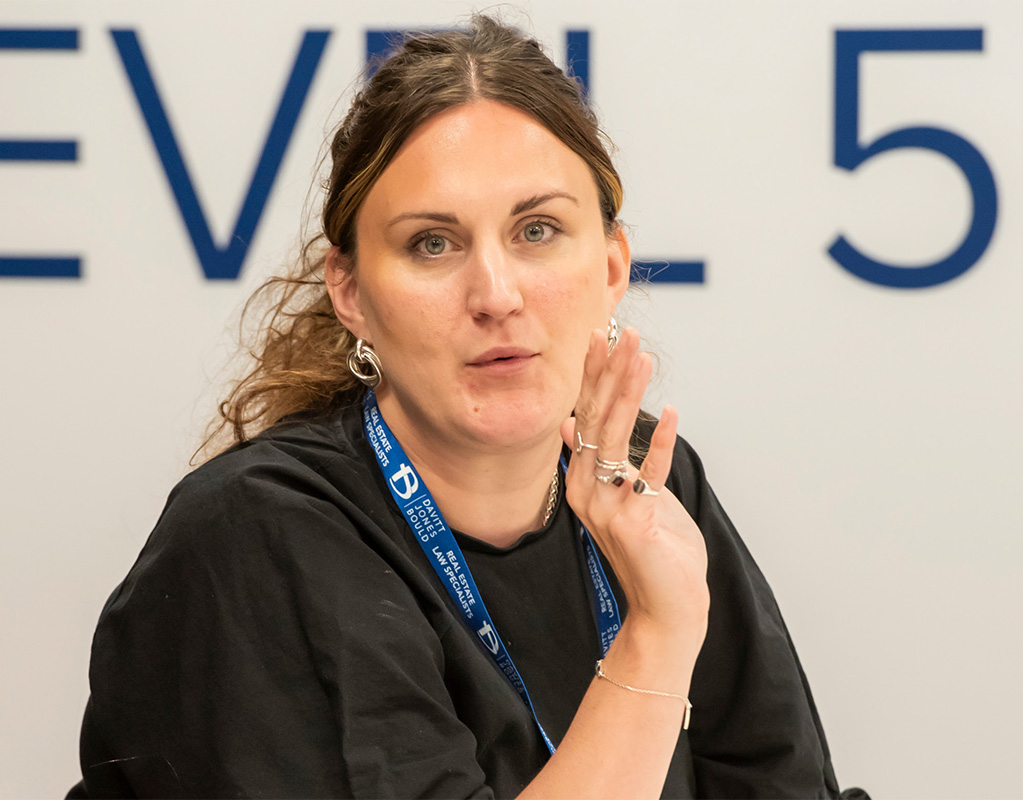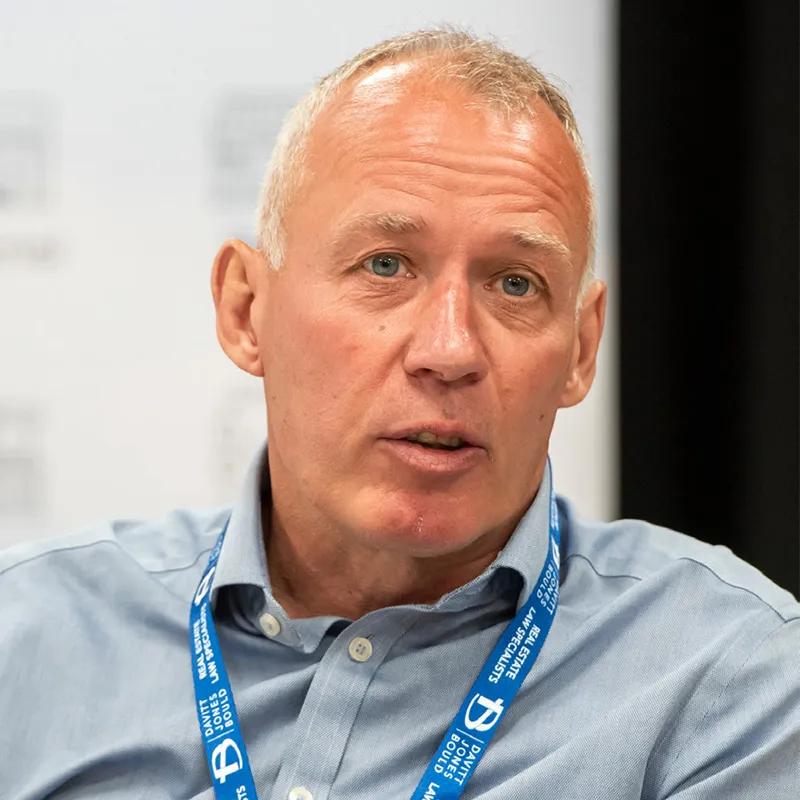Leading industry figures joined BE News and Yardi at UKREiiF for a lively and important debate exploring the ways tech is – and should be – used to meet investor expectations.
INDUSTRY GUESTS:
- Olivia Harris, CEO, Dolphin Living
- Dan Greenslade, Chief Financial Officer, Get Living
- Louise Bangee, Director of BTR, urbanbubble
- Paul Staley, MD, Wise Living
- Simon Gawthorpe, MD, Urban Splash
- Eli Kauffman, Associate Partner, Landswood de Coy
- Justin Harley, Senior Director, Yardi
- Stephen Walker, Head of AI & Technology, Aberdeen Investments
- Laura Kurt, Commercial Director, Fusion Group
- Ivo Krastins, Intelligent Buildings Consultant, Savills
- Rachel Hanniquet-Brooking, MD, APO
- Liz Hamson, Editor-in-Chief, BE News (chair)

During a wide-ranging roundtable discussion held at UKREiiF and sponsored by Yardi, a group of leading industry experts discussed how property managers should be using tech to manage occupancy rates and costs and assessed how tech can be used more effectively in conjunction with data and AI to meet investor expectations.
How well are property managers currently leveraging tech?

HARLEY: We find ourselves in a privileged position in terms of dealing with both investors and property managers. And I’d say we’re definitely seeing an element of friction between the two, because the property reports just aren’t coming in fast enough [for investors].
Maybe this is controversial, but I believe the investors should own the system and the data, yet so often they don’t, and this means they might not be getting the data that they want in real time. We’re all getting our heads around leveraging AI, sure, but I think AI gives us lots of opportunity for easing this friction.
KRASTINS: There’s been an impact from an organisational perspective, yes, because AI allows us to implement more language models. But we’ve not seen too big an impact on the day-to-day operations yet. AI has been a little bit hit and miss to be honest.

WALKER: Hit and miss is a good way of putting it. I believe that, fundamentally, your tenants need to be looked after well. They need working toilets and lifts and for us to get the basics right in their building.
You can’t assume just because you’re going to add AI to your business, everything will suddenly work better. It’s about ensuring you already have good processes in place and are simply adding AI on top of it all in a seamless way.
AI will only do what you ask it to do with the data that you give it. If your internal documents are already a mess, it’s not going to suddenly find good data.
KAUFFMAN: For me it’s about us all managing proptech, rather than proptech managing us. Some things can be replaced by AI, but others can’t. Sometimes tenants need to be spoken to by a person.
If they have no hot water and they’re getting messages from Chat GPT about the next steps, then they’re going to go crazy and they’re all going to leave at the end of their lease.
Human interaction needs to stay at the heart of our business, with AI one of a variety of different tools that can help us all do our jobs better.
How ready do you think the living sector is for AI, and does the sector understand its capabilities?
WALKER: I believe the sector is ready, but there’s also some nervousness around AI too. The problem is there’s never been a technology before that pretty much improves and evolves into something new every single day. Therefore, you don’t want to go all in tomorrow and invest millions into a specific AI system to find out the next day it’s suddenly obsolete.
“AI has been a little bit hit and miss to be honest.”
Ivo Krastins

HARRIS: I believe the sector is ready, but it shouldn’t rush. For example, we have a lot of residents who want to contact us and give us their data, but I would stress that people in their 60s and people in their 20s both interact in such different ways, so there can’t be a one size fits all approach to how AI interprets their data or offers them solutions.
We’re looking at where we can create value for AI. So, for example, can you use AI to look at people’s payment patterns and behaviours so we can work out how to improve our arrears management? That particular capability is very exciting.
HARLEY: I’d like to stress that property management firms shouldn’t worry too much if they haven’t utilised AI yet. We carried out a poll recently and 50% said they haven’t yet implemented AI. You’re not in a bad place if you’re behind on AI; it’s important to take your time in getting it right.
There are a few things I believe you need to consider before introducing AI: have you done your data housekeeping, how tired is your data, and how are you going to keep your information private?
How many of you are actively using AI and how many of you are waiting to find the right moment?
“We’re on a journey to try and improve processes.”
Dan Greenslade

GREENSLADE: We’re on a journey to try and improve processes. We want to improve data collection, both internally and in terms of what we report to our investors.
The idea of reporting data in real time is very attractive to our investors, but with that you do lack human interpretation, which can be dangerous.
We don’t feel like we’re quite there yet, but the ambition is to be actively using AI within a year or so.
STALEY: Our clients are very demanding on data and sometimes there’s this tension between what you can do, what you should do, what you’re capable of doing, and finally who is going to pay for it.
Because there is obviously a big cost around AI. Not just in terms of the technology, but also the software and the training of people. The biggest challenge I feel is being honest with your partners and telling them you’re not going to get everything for free.
If you want to go on this AI journey with us, then it’s not just about the operators and the software partners stepping up, but it’s also about investors putting their hands in their pockets as well.

KURT: I would stress that AI definitely can bring cost efficiencies. The way we’re using it at the minute is to replace having to expand our team in a ridiculous fashion and actually have the people doing the job that you want them to do from a service provision standpoint.
We’re not getting rid of people – rather, we don’t need to bring as many new people into the business. AI means we can improve the focus of our staff because they’re not wasting so much time on administrative tasks.
BANGEE: Our residents are already using AI to assist with their daily lives and they expect you to be using it as well or you seem outdated. You need to be confident that AI is in place to support the tenant’s journey, but I’d stress there also needs to be a human being there for those that don’t want the AI.
Balance is key. When you start to put AI into the business, you have to think: does it look right, is it the right tone of voice, is it tapping into your brand’s POV? If someone interacts with your AI system and they feel it’s just a rush job, then they’re going to think you’re lazy.
Is that the biggest risk; that AI awkwardly replaces that human connection and dilutes a brand?

HANNIQUET-BROOKING: For sure. Soon, we’re all going to have to declare how much AI we’re using, because the government is reviewing all the digital stuff.
Someone is going to say: they’re just making people speak to a computer, because they can’t be bothered to do their job.
We’ve all complained about call centres, which end up passing you to someone in India. Our sector cannot afford for AI to create a similar sort of backlash.
Where I think AI can be positive is around analysing customer emails. It can analyse the language used and then ensure we’re responding in the best possible way.
WALKER: I know AI can write a 2,000 word report on market regulation, but you can’t 100% rely on what it produces for you.
It is important that a human being reads through the copy and ensures everything is fact-checked, because the AI is unreliable and that can create legal issues. The human connection can’t be lost.

“I think that the hype cycle we are in at the moment will fade.”
Stephen Walker
KRASTINS: AI can’t replace human connection, but it can make the people in your business work more effectively.
We’ve got instances where we’ve integrated AI and made data more visible for our engineers on site.
It means the engineers are noticing more and more things. Instead of having 50 data points to reference each day, they now have 100.
It also means we’ve had to hire additional engineers. This shows AI isn’t necessarily taking human jobs, but it is sometimes adding more of them.
How effectively do you think your businesses will be leveraging AI tech and data to meet investor expectations by 2030?

GAWTHORPE: By 2030, I think we’ll all be saying: “Do you remember when it used to take us 28 days to get a tenant moved in? Do you remember when we didn’t do this? Do you remember when we had a team of 100 on data and actually now there’s just 10 people doing it?”
So absolutely yes, I think we’ll dive heavily into AI and, well, hopefully we will have made the right choices.
STALEY: For us, it’s about embracing whatever comes our way. We’ve been adaptable so far, and I don’t think we’re going to change from being adaptable.
Covid-19 showed this sector you can’t see what’s coming tomorrow, so let’s all react to AI in a way that’s sensible.
WALKER: Honestly, I think the hype cycle we are in at the moment will fade. I think next year, and the year after, it will be a lot less buzzy. I believe the answer is technology plus humans. It’s about giving the customer a choice, right?
Do they want to talk to AI via WhatsApp or do they want to speak directly to a person? When you make AI the only choice, you annoy a lot of people.

HANNIQUET-BROOKING: In five years, I believe we will have fully adopted AI and we’ll be working with it. We’re real advocates for the benefits of AI.
But I just hope we’re always going to be balancing AI with the importance of the human element within the property industry. Our business is homes and lives, and that focus can’t change.
BANGEE: Yes, we will absolutely have adopted it by 2030, but I hope we will do so in a way that gives the customer more choices.
If you want to book a property viewing, it’s about using the AI so it can give them a virtual tour or answer questions should they not be able to come to the building in person. Offering more choices is how you make AI a success.
“My focus is always going to be on how we can deliver a better outcome for tenants.”
Olivia Harris

KRASTINS: It’s difficult to predict. I think we’re going to see people either thriving or surviving. There’s going to be companies that you didn’t know about flying, because they’ve used AI in a creative way, and there’s going to be other companies who were market leaders before, but they were not quick enough to embrace AI, so now they’ve slipped.
My hope is the property industry spends the next few years collecting data and improving data, so the AI has the right stuff to analyse.
HARRIS: My focus is always going to be on how we can deliver a better outcome for tenants. So, that means stopping people falling out of their tenancy or fixing their broken central heating. If in five years time, AI is helping us do those core things better, then that’s a success.
HARLEY: By 2030, I think we’re going to all be saying, “Remember when we used to do it like this?” The one thing that I think everybody has to get right is there’s going to be a real shift in the people you need to make this stuff happen and that subsequently means there’s going to be a fight for hiring talent.
You also have to get your data right, first, and only then will you be toasting to AI’s success five years from now.